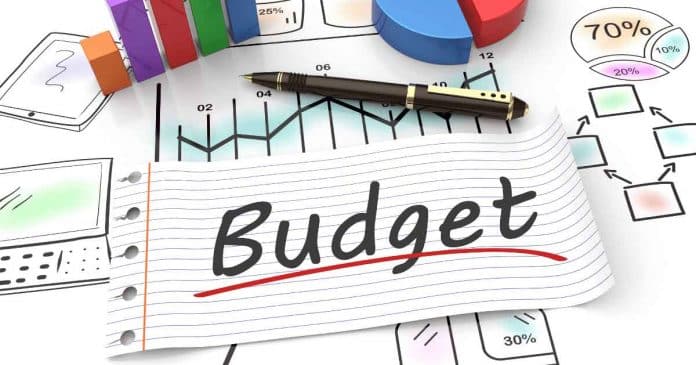Building a budget for a startup can be daunting. If you have ever struggled with accounting for the money invested in building your business, the major thing missing might be a budget.
Every penny spent building your business counts. Yet, only about 61% of businesses start without a budget, according to a survey from Clutch in 2018. Creating a budget for your business can be beneficial in many ways, including;
- Spend effectively;
- Concentrate on the essential business needs;
- Allocate resources;
- Track the business’s financial growth;
- Analyze the overall performance of your business.
If you are yet to have a budget for your business, below are the steps to creating a good and efficient one. Since you don’t have any previous financial data to work with, your budget would be created using your best guess on income and expenses.
Choose your tools and template

Tools and templates like Google Sheets or Microsoft Excel help simplify the process of creating your business budget. You can also integrate the budget with your bank account or other popular business accounting software. The most important thing is to choose a tool you can easily work with.
Also, there are countless templates online you can choose from. However, ensure to test their efficiency by entering some sample numbers. Starting with a tool or template is a great way to organize the budget.
Have a target

The goal of creating a budget is to have a targeted amount to invest in the business over a given period of time. As such, start your budget with the targeted amount. This could be a general amount you think would be enough to carry the business for a given period.
Note: Never forget to set aside an emergency budget. Also, your budget should last at least for a space of three months. Recreating your budget after three months helps you to include the necessary things you might have excluded from the previous budget.
List out the essential startup cost.

Your startup costs are your priority purchase to keep your business flowing. There are two major startup costs to keep in mind. The startup assets and the startup expenses. Your startup assets include one-time purchases like inventory, furniture, computer, and security.
Startup expenses are variable expenses you pay before launching or opening the business. For instance, rent and payroll.
Settle your fixed cost

Fixed costs are business expenses that remain for a long period. These include
- Payrolls and benefits;
- Rent or mortgage;
- Website Hosting;
- Business Insurance;
- Internet and phone services;
- Bank fees;
- Professional services.
Carefully define the amount it will cost you to settle your fixed cost in your budget.
Determine your variable cost

Once you settle your fixed cost, your variable cost is next on the list. Unlike fixed costs, variable costs fluctuate over time. Some of these are:
- Advertising bill;
- Raw materials;
- Utility bill;
- Freelance service bill;
- Shipping bill.
Unlike your fixed cost, your variable cost will constantly be updated in your budget based on its recent pricing.
Evaluate and forecast

This is critical for creating a budget. Take a step ahead, evaluate all you have on your list, and measure this with your current income. Also, you can work with a forecast based on the amount your business is making. If you are just starting your business, keep in mind that the income generated in the first year of the business will be lower than what it will generate in subsequent years as it grows.
Notwithstanding, you can use your current customer personas to gauge how well customers would patronize you.
Review and adjust your budget

Once you have everything figured out in your budget, review and adjust if necessary. Add everything to give you a better view of how much you need to start.
Good startup budgeting equals better business. “A budget works on common sense.” “If you made $100,000 last year in revenue, common sense indicates you won’t make a million next year. You are best off estimating in the range of $80,000 to $120,000.” According to Victor Butcher of Butcher Financial Services in Memphis, Tenn., a former president of the Tennessee Society of Certified Public Accountants’ Memphis Chapter, who advises small businesses.
If you are a business owner, Kominiti is a platform that connects you with global business owners. To get started, visit www.kominiti.com
Kominiti is simple, safe, and secure.


